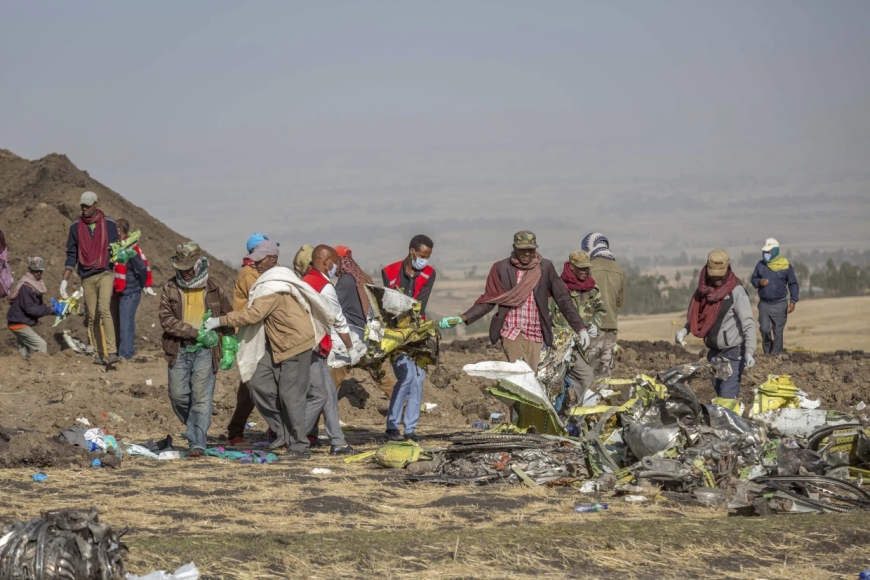Boeing to Plead Guilty to Criminal Fraud Charge Stemming from 737 Max Crashes

In a significant development, aerospace giant Boeing will plead guilty to a criminal fraud charge linked to the fatal crashes of its 737 Max aircraft, the U.S. Department of Justice announced on Sunday. This decision comes after U.S. prosecutors indicated that Boeing had breached a 2021 settlement agreement, which previously protected the company from prosecution.
The plea agreement, which requires approval from a federal judge, entails Boeing paying a $243.6 million fine. Additionally, an independent compliance monitor will be appointed to oversee Boeing's operations for a three-year probationary period. Boeing is also mandated to invest at least $455 million in compliance and safety programs, as detailed in a court filing by U.S. prosecutors.
One of the key components of the agreement is that Boeing's board of directors will meet with the families of the crash victims. This stipulation underscores the emotional and human impact of the crashes and the company’s acknowledgment of the suffering caused.
Boeing faced a crucial decision between accepting the guilty plea with its conditions or proceeding to trial. This comes at a pivotal moment as the company aims to recover from its manufacturing and safety issues, appoint a new CEO, and acquire fuselage manufacturer Spirit AeroSystems.
The guilty plea will designate Boeing as a felon, potentially complicating its business dealings with the U.S. government, from which it derives a substantial portion of its revenue. Approximately 32% of Boeing’s $78 billion revenue last year was generated from its defense, space, and security unit.
In a statement, Boeing confirmed reaching an agreement in principle with the Justice Department, subject to the finalization and approval of specific terms. The company expressed its commitment to resolving the issue and moving forward.
In May, the Justice Department accused Boeing of violating the 2021 deferred prosecution agreement. That original agreement required Boeing to pay $2.5 billion, including the initial $243.6 million fine, compensation to airlines, and a $500 million fund for victims' families. The 2021 settlement was nearing its expiration when a new safety incident occurred—a door plug blew out of a nearly new 737 Max 9 operated by Alaska Airlines on January 5. Although there were no serious injuries, this incident triggered another safety crisis for Boeing.
The U.S. government has accused Boeing of conspiracy to defraud by misleading regulators about a flight-control system on the 737 Max, which was implicated in the two deadly crashes. The crashes—Lion Air Flight 610 in October 2018 and Ethiopian Airlines Flight 302 in March 2019—resulted in the deaths of all 346 people on board.
U.S. prosecutors informed victims' families on June 30 about their intention to seek a guilty plea from Boeing, a plan that some family attorneys criticized as a "sweetheart deal." Paul Cassell, an attorney representing the families, stated his intention to ask the federal judge to reject the plea deal and proceed to a public trial, ensuring that all facts surrounding the case are publicly disclosed.
The Boeing case highlights ongoing concerns about corporate accountability and regulatory oversight in the aviation industry. The outcomes of this plea deal and its implications will be closely watched by stakeholders and the public, as Boeing seeks to restore its reputation and assure the safety of its aircraft.













































